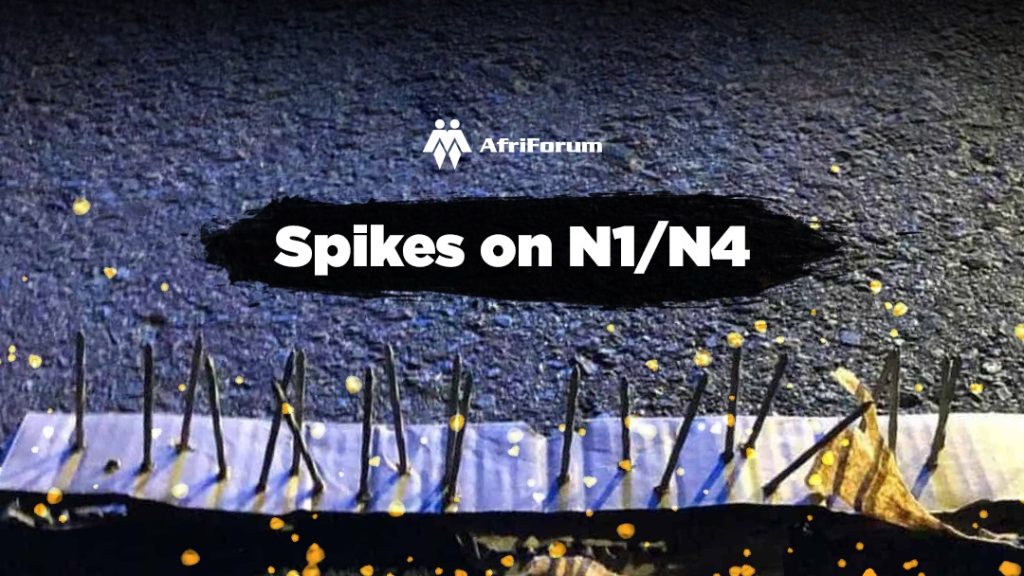SPIKES ON N1/N4
Mandate
"*" indicates required fields
Although spiking attempts can happen anytime, they are more likely to occur after dark. The perpetrators take advantage of the darkness to hide the hazards from unsuspecting drivers until it is too late for them to brake or avoid the spikes.
The main objective of these criminals is to damage a vehicle, particularly its tyres, causing the driver to pull over and assess the situation. These criminals mainly use spikes made from nails and wood or big stones and other objects.
Once the driver pulls over, they are vulnerable to robbery and may lose their possessions.
Abramjee highlighted that the notable hotspots for spiking at the moment are the N4 from Pretoria to Rustenburg and the N4 on the way to Mpumalanga.
This seems to correlate to the hotspots registered by the Gauteng traffic police, which identified the following as spiking hotspots:
• N4 Mpumalanga to Pretoria between Solomon Mahlangu and Watermeyer off-ramp
• N4 Pretoria to Mpumalanga between Bronkhorstspruit and Balmoral off-ramp
• N1 Polokwane and N4 Mpumalanga interchange in Pretoria
• N4 to Rustenburg between R80 Mabopane freeway and Brits Plaza tollgate
• Golden Highway.
• R21 freeway from O.R. Tambo International Airport to Pretoria
• R562 in Olifantsfontein
• N12 in Witbank, under the Merridale bridge
• N12 between Klerksdorp and Potchefstroom
• N3 between Leondale and Barry Marais Road
• N17 between Rondebult and Heidelberg Road
Abramjee added that incidents have been reported on secondary adjacent roads in and around those areas.
Safety tips
- Under no circumstances must the car be stopped after an incident in which the vehicle’s tyres, windscreen or other parts have been damaged. Continue driving as far as possible until you reach a safe destination.
- Contact your local neighbourhood watch, a security company or emergency services as soon as possible and inform them of the incident. Give full details of the object used in the trap and provide the address or location thereof. This will prevent attacks on other motorists who may be targeted in the same way.
- Make sure your cellphone is charged before you hit the road.
- Share your location with loved ones, especially when traveling alone.
- Be alert and get into the habit of looking ahead in the road to spot any threats, foreign objects, or people on or along the road.
- Save the contact numbers of the emergency services, the local neighbourhood watch or security companies on your phone.
- Consider installing an emergency service application, such as the AfriForum 911 panic button application, on your phone. This application is available for free on Google Play Store (for Android devices) and App Store (for iOS devices).



